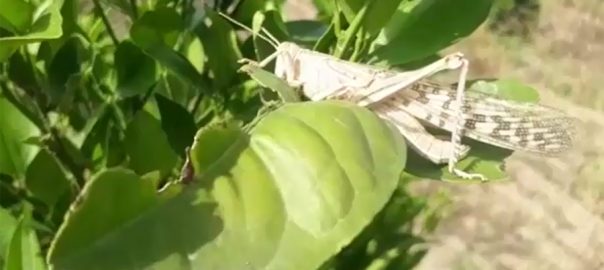NDMA Says 61 Districts Of Pakistan Facing Locusts Attack
ISLAMABAD– As many 61 districts across the country are under locusts attack, which have been damaging food crops, the National Disaster Management Authority’s spokesman informed on Friday.
Providing a breakdown of the districts, the NDMA spokesman said that the most attacks were reported in Balochistan, where 31 districts witnessed crop damage from locusts.
In Khyber Pakhtunkhwa, 11 districts faced locust attacks while 12 districts of Punjab were also attacked by the insects.
The NDMA spokesman said that crops in seven districts of Sindh were also damaged.
The NDMA spokesman said that the survey and operations in locust-hit areas are underway, adding that 1,150 locust-control teams are a part of the operation.
The authority further said that in the past 24 hours, around 313,000 hectares of land were surveyed for the evaluation of damage.
The spokesman apprised that 4,400 hectares were treated across Pakistan, while in Balochistan 1,700 hectares of land were sprayed with insecticides.
In Punjab, 1,000 hectares of land were sprayed while in KP, 900 hectares of land were treated.
In Sindh, 800 hectares of land were treated, added the NDMA spokesman.
Swarms of locusts have been wreaking havoc on food crops across Pakistan recently, with the attacks gaining frequency in several districts of Sindh, Punjab, and Balochistan.
Locusts attacked crops in Multan, Muzzaffargarh, Vehari, Rahim Yar Khan, Bahawalnagar, Bahawalpur in Punjab and Sanghar, Matiari, and Ghotki in Sindh.
The swarms have been devouring mango, cotton, and sugarcane crops, causing severe damage to the agricultural sector.
In a bid to facilitate complaints related to locusts, NDMA has activated a hotline 051-111-222-999 for registering and resolving issues pertaining to their attacks.
“The aggrieved farmers can register their complaints about the existence of locusts in their respective areas or need of spray on the hotline for 24 hours,” the NDMA spokesperson had said in a statement released this week.

